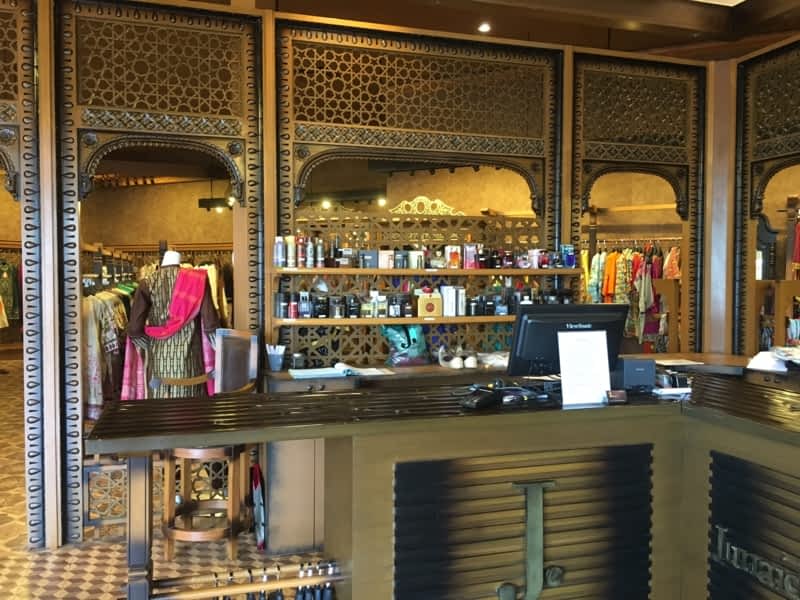Junaid Jamshed Shop
Before Junaid Jamshed radically changed his life to pursue a more spiritual existence, he was a pioneer of Pakistan's pop music scene 'When I came back from a religious tour in 1997, I realized that there was so much more to life than just singing and jumping around' – an insight that eventually prompted his transformation from pop icon to devout Muslim. Junaid Jamshed explains: 'When I decided to give up singing, a lot of people were shocked. But I was sure that it was the right decision because Allah forbids the kind of singing that I was doing, and it's my duty to follow His command.' Since then, Junaid Jamshed has been widely criticized. Many fans can't accept his sudden departure from the pop music scene. How does Jamshed deal with this criticism?

'I don't deal with it because I don't worry about criticism. In this day and age you simply can't listen to what people say because you are always criticized, in every situation. It's really a shame that I'm always asked why I stopped singing. It is Allah's command. Why doesn't anyone ask me where it says in the Quran that singing is allowed?' By strictly adhering to the tenets of Islam, as interpreted by orthodox Muslims, the one time heart throb is barely recognizable these days, with his ever growing beard. 'I wear a full beard because that's the way it should be.
Junaid Jamshed Clothing
Some people may find that ugly and unhygienic, but if Allah had commanded us not to wear a beard and shave every day, then people would have something else to object to. People need to learn to accept the will of Allah.' 'The prophet was also a merchant' After embarking on his journey to religious enlightenment, Jamshed launched a highly successful fashion chain under his name. In ten cities across Pakistan, consumers can shop in Junaid Jamshed boutiques for traditional clothing, alcohol-free perfumes, and shoes. So how does the former pop idol reconcile his devotion to Islam with owning a designer fashion label? 'Our prophet Muhammad, peace be with him, was also a merchant who sold cloth. It was allowed, and all that is the will of Allah should be done.
At first, I made the designs myself, but my products were so successful that I was able to afford my own designers, and they now run the entire design department.' A pop star's rise to fame Before Jamshed radically changed his life to pursue a more spiritual existence, he was a pioneer of Pakistan's pop music scene. He rocketed to fame as the leader of the first Pakistani pop band, Vital Signs. Their patriotic song 'Dil Dil Pakistan', released on 14 August 1987 to mark the country's 30th national anniversary, instantly became a smash hit.
The four talented young musicians from Rawalpindi, a city in northeast Pakistan, all came from respectable families, wore jeans, let their hair grow long, smoked cigarettes, and literally took the country by storm. Today the band is widely recognized as the most popular Pakistani band of all time. At the height of the group's success, even grandmothers reportedly carried photos of the band members in their purses, especially of the lead singer of the Vital Signs – Junaid Jamshed. From Quran school to pop star 'I was a good Quran reader in school,' says Jamshed.
'I could stress the Arabic words correctly. All this reading was virtually the best training I could get to prepare my voice for singing. So when we formed the band, it was easy for me to sing for hours on end.' Born on 3 September 1964, Junaid Jamshed was 23 years old when the Vital Signs released their historic hit single. Today many consider him to be one of the best-looking men in the music business. He is a good singer and a natural born actor, having played the main role in all the band's video clips, as a heartbreaker and, at times, as a man with a broken heart. When Jamshed married in 1990, he broke the hearts of fans across the nation.
Nevertheless, his fans remained loyal and the band's popularity actually increased. A charismatic media star Jamshed was much more than just the lead singer of the Vital Signs.
Junaid Jamshed Shop Faisalabad
While the three other members of the band tended to remain in the background, Jamshed was their main representative, appearing on talk shows, signing autographs, and attracting the attention of enthusiastic female fans. In submitting this comment, the reader accepts the following terms and conditions: Qantara.de reserves the right to edit or delete comments or not to publish them. This applies in particular to defamatory, racist, personal, or irrelevant comments or comments written in dialects or languages other than English. Comments submitted by readers using fantasy names or intentionally false names will not be published. Qantara.de will not provide information on the telephone. Readers' comments can be found by Google and other search engines. I was intrigued by the title, you don't hear muslims relate 'sinning' or 'not sinning' to being the cause of their faith very often?